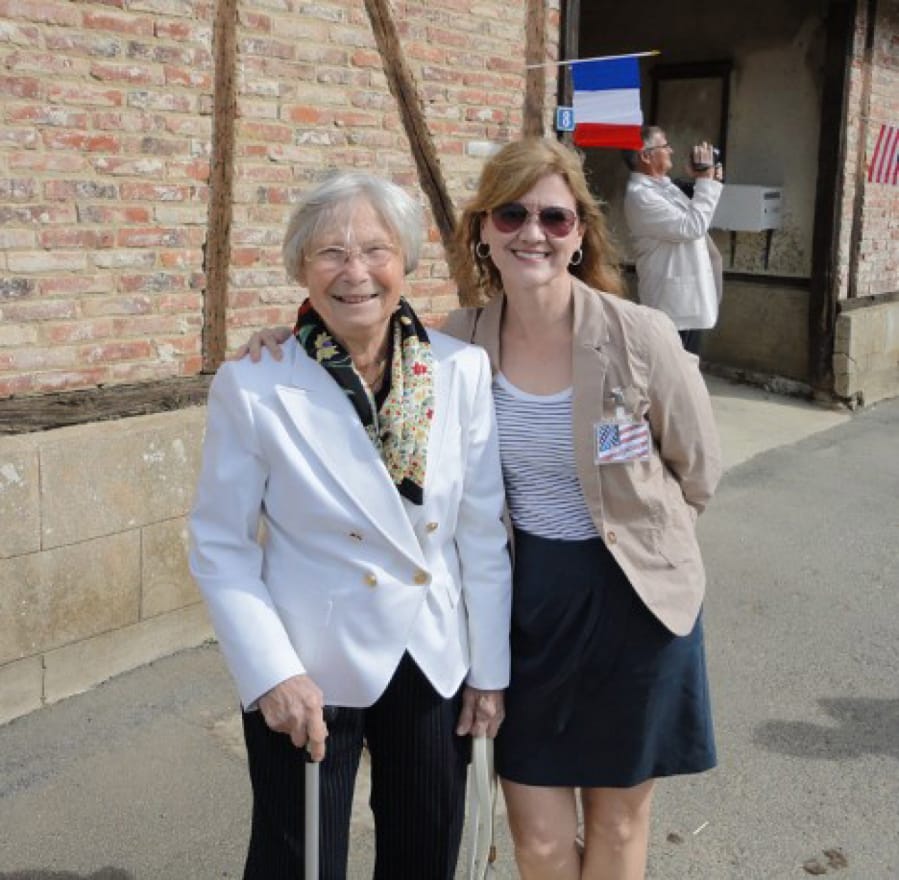Author Susan Tate Ankeny has been contacted and thanked recently by many military families she’s never met, she said. As far as she’s concerned, the real thanks are due to ordinary French citizens who risked their lives decades ago to save the American soldiers who were trying to save them.
Rescued parachutists like the ones at the center of Ankeny’s deeply researched World War II adventure, “The Girl and the Bombardier: A True Story of Resistance and Rescue in Nazi-Occupied France,” often didn’t like to relive their traumatic experiences, Ankeny said.
Her father was different. Dean Tate reveled in the story of his own survival and deliverance by just-plain-folks in the French countryside.
“He always told it like he was incredulous to be alive,” Ankeny said. When she was young, the story got so familiar it prompted eye-rolling in front of her friends and boyfriends. It wasn’t until she had a family of her own that Ankeny started pestering her father to write it all down for his descendants. Unfortunately, he never got beyond bits and pieces, she said.




